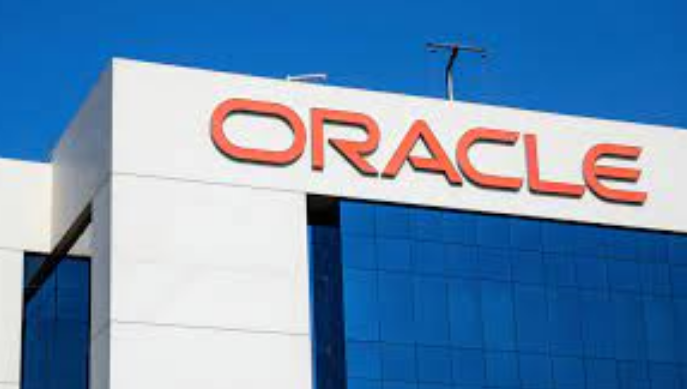Factors Affecting Oracle’s Share Price

Oracle Corporation, one of the world’s largest and most acclaimed technology firms, has long been an important presence in the technology sector. You may have wondered how its share price has fared over time or what factors may have contributed to any fluctuations that might have taken place over time.
Cloud Computing and Oracle
With the rise of cloud computing in the late 2000s came both opportunities and challenges for Oracle. To remain competitive against cloud-native providers such as Amazon Web Services (AWS) and Microsoft Azure, the company decided to invest heavily in infrastructure and services dedicated to cloud computing; this allowed it to increase its share price significantly.
Oracle share price remains a prominent player in the tech sector, with a focus on cloud services, artificial intelligence and emerging technologies.
- Application: Oracle’s cloud strategy has been an essential factor in its share price performance in recent years, enabling it to compete more effectively against established cloud giants through investments in infrastructure and applications for the cloud.
- Acquisitions: Oracle has expanded their product and customer offerings through strategic acquisitions such as their purchase of operations, increasing product diversity while positively affecting their share price.
- Competition: Oracle continues to face strong competition from cloud-native companies and its share price battleground. Market dynamics and Oracle’s ability to distinguish itself are pivotal components in shaping its share price performance.
- Economic Conditions: Global economic conditions can have an enormous impact on Oracle’s share price. Economic downturns could prompt businesses to reduce IT spending, potentially hurting both revenue and stock price growth for Oracle.
- Regulatory Issues: At Oracle, changes in government regulations and antitrust scrutiny can wreak havoc with operations. Such issues create uncertainty in the market that impacts share prices negatively.
Oracle Has Bold Road Ahead
While Oracle has shown remarkable resiliency and flexibility over its history, it now faces numerous hurdles that could erode its share price in the coming years.
- Intense Competition: Competition in the cloud market is fierce, with Amazon Web Services (AWS) and Microsoft Azure dominating. Oracle must not only keep up but also find unique value propositions to attract customers if its cloud ventures are to succeed and ultimately drive its share price higher.
- Endeavour: Oracle is well known for making strategic acquisitions to expand their product offerings, yet successfully integrating each acquisition can be a challenging endeavor. They must ensure that these new additions seamlessly fit into their ecosystem to provide customers with one unified solution.
- Regulatory Scrutiny: Oracle faces intense regulatory scrutiny as one of the leading tech giants. Antitrust concerns and data privacy issues could potentially have detrimental effects on business operations and investor sentiment; how Oracle manages these regulatory challenges will determine its share price stability.
- Market Sentiment: Investor sentiment can play a crucial role in Oracle’s share price movements. Quarterly earnings reports, guidance from company leadership and general market conditions all play a part, often leading to short-term fluctuations that affect share prices.
- Technological Innovation: Staying ahead in technological innovation is of utmost importance in the tech industry, so Oracle must continue investing in research and development for cutting-edge solutions and to remain competitive.
Oracle Share Price Opportunities
While facing many obstacles to its growth and share price expansion, Oracle still holds many opportunities that could boost it significantly.
- Cloud Adoption: Oracle recognizes that the global shift to cloud solutions represents an incredible opportunity. As more businesses move their operations into the cloud, demand grows for enterprise-grade cloud services like those provided by Oracle.
- Autonomous Database Technology: Oracle’s autonomous database technology, which employs AI and machine learning techniques to effectively manage and secure data, stands out as an innovative product within its market segment. Should this technology find widespread adoption, it could drive revenue growth while increasing Oracle’s share price.
- Industry-Specific Solutions: Oracle has been focused on creating industry-specific solutions, including cloud applications tailored for healthcare, finance and other sectors. By offering more specialized offerings tailored specifically to these industries, Oracle can make itself more appealing to businesses operating within them.
- Global Presence: Oracle enjoys a strong global footprint that allows it to access emerging markets and diverse customer bases. Expanding this international reach may drive growth and ultimately result in higher share prices. [Diversification and Product Portfolios**
Oracle database Management system
Oracle has seen great success with their strategy of diversifying their product portfolio to maintain relevance in the tech industry. While their database management systems remain popular, the company has expanded into other areas such as enterprise software, cloud services, and hardware production.
- Enterprise Software: Oracle offers an expansive selection of enterprise software solutions designed to meet various business requirements, from customer relationship management (CRM), enterprise resource planning (ERP), human capital management (HCM), and more. With such comprehensive offerings from their software offerings, they have become a one-stop-shop for businesses seeking comprehensive solutions for their operational requirements.
- Cloud Services: With cloud computing’s shift towards SaaS becoming ever-more prevalent, Oracle has invested significantly in their cloud infrastructure and services. Their Oracle Cloud offers a robust selection of IaaS offerings; Platform as a Service (PaaS); and Software as a Service (SaaS). This strategic move has allowed them to take a significant share in this fast-growing market.
- Hardware: Oracle’s 2010 acquisition of Sun Microsystems expanded their hardware presence significantly, providing customers with seamless solutions combining hardware and software solutions for an enhanced customer experience.
Innovation Plays an Important Part
Oracle understands the significance of innovation in the tech sector, which is why they have invested significantly in research and development (R&D) efforts in order to remain at the forefront of emerging technology areas.
- Artificial Intelligence (AI): Oracle has long integrated artificial intelligence and machine learning into its products and services, such as autonomous databases that self-optimize, patch, and tune themselves for maximum efficiency, thus decreasing manual maintenance efforts while improving operational efficiencies.
- Blockchain: Oracle has also explored blockchain technology, with potential uses across supply chain management, finance and beyond. By staying at the forefront of innovation surrounding this trend, Oracle ensures its customers receive cutting-edge solutions.
- Internet of Things (IoT): Oracle has made major strides in IoT, capitalizing on an increasingly interconnected world by offering robust data management and analytics solutions via their IoT cloud offerings for this emerging market.
Earnings Reports of Accuracy
Oracle’s quarterly earnings reports are eagerly anticipated by investors, providing insight into its financial health, performance and outlook. Key metrics such as revenue growth, earnings per share (EPS), guidance for the next quarter can have a powerful influence over investor sentiment and share price movements.
Oracle’s financial performance should be monitored carefully in order to make informed decisions; strong earnings reports with positive growth figures often result in share price appreciation while disappointing results could cause declines. Investors seeking informed decisions need to closely observe Oracle’s financial performance and understand what factors drive its earnings.
Conclusion
Oracle’s share price has experienced its fair share of swings over time, reflecting the ever-evolving tech industry. Oracle’s ability to adapt to changing market conditions, invest in emerging technologies and effectively compete in cloud computing will ultimately have an effect on their future share price performance. Staying abreast of Oracle’s strategic moves as well as industry news is vital in order to understand their share price trends and potential investment opportunities. For more information check out 5paisa.





